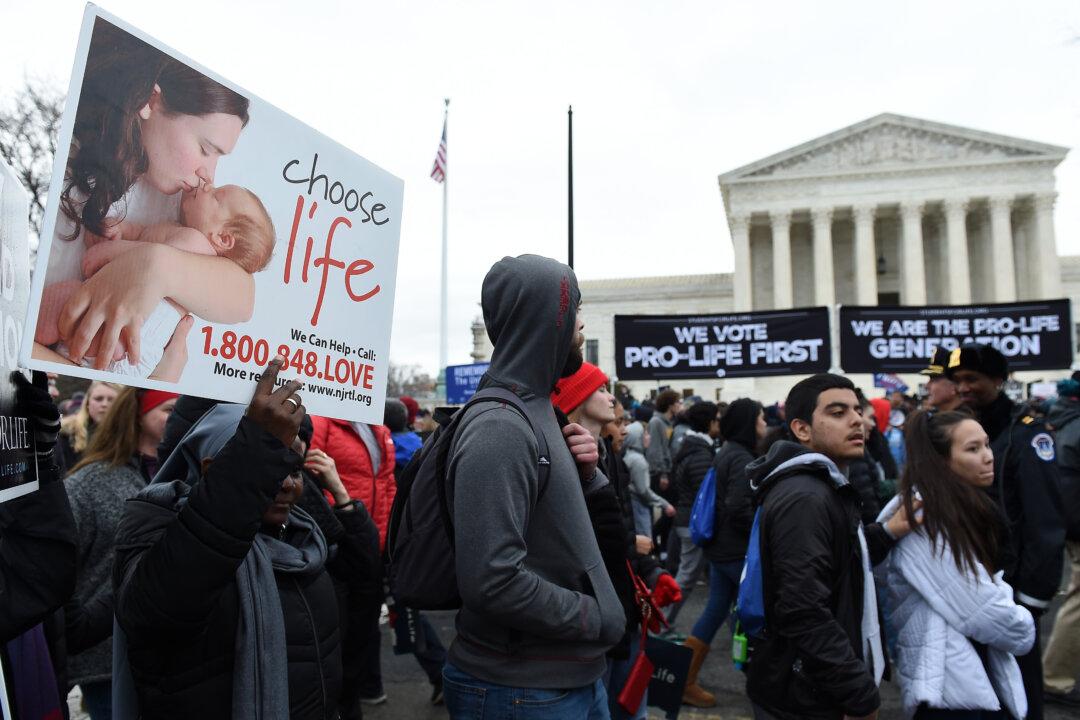The Supreme Court is gearing up to hear a serious legal challenge on Dec. 1 to its 1973 ruling legalizing abortion throughout the United States—and contributing mightily to the polarization of the politics of the nation for nearly half a century.
The court will hear Dobbs v. Jackson Women’s Health Organization, court file 19-1392, a challenge to Mississippi’s Gestational Age Act, which allows abortions after 15 weeks’ gestational age only in medical emergencies or for severe fetal abnormality. Lower courts struck down the statute.





